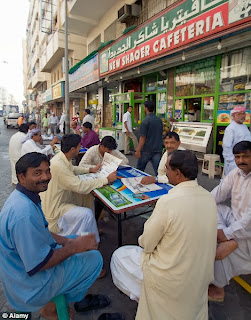Translate
Sunday, November 10, 2013
This pipeline contract is intriguing
Friday, November 8, 2013
Heavy oil, Nigeria's Alternative to the conventional crude oil
NIGERIA should learn from DUBAI'S oil transformation
Crude oil is not a curse
Sometimes one begins to wonder if this so called blackgold were a cause to the progress of Nigeria. When puts into account that the oil wealth hardly reaches the nooks and crannies of this Country, You might want to know the comprehensive history of the oil and gas Industry in Nigeria
One could decide in a rash fashion that oil is synonymous to a curse. According to a post i n the daily independent titled ‘Petroleum sector, a blessing and a curse’ the writer strikes a balance between its gains and losses. Read more on this at I am of the opinion that everything the Almighty as created is good. We all know the story of Dubai, Malaysia, China, France and even America.
I would love to use Dubai as a case study, everything changed for Dubai with the discovery of oil in the Gulf in the late 1960s, bringing a soaring economy and an army of traders who flocked to the emirate to settle there. As it began to export crude oil, the petro-dollars flooded in to Dubai and by 1973 the Dirham became the official unit of currency.However, by 1980 the annual oil income dropped to an all-time low, forcing the emirate to think of other ways to make money. By the mid-1980s it began its reinvention as a tourist destination and the Emirates airline was established.
The emirate's continued status as a tax-free haven brought even more ex-pats to settle in Dubai and in 1999 one of the tallest hotels in the world opened, cementing the city's reputation as a tourist destination. Read more on The Dubai transformation on this link In a nutshell Dubai is diversifying and still making money from Oil. Crude oil gave Dubai the plethora of joining the list of wealthy Emirates. As far as I am concerned we need new crop of leaders that would see that crude oil is the mainstay of our economy and not a resource for enriching the pockets of a minority of the Nation. God Heal Nigeria!
Subscribe to:
Comments (Atom)




















